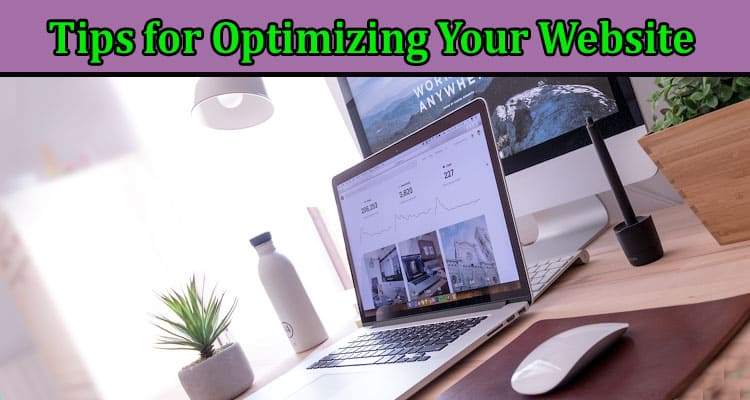Website optimization is vital for creating a successful website that will help your business engage with your target audience. By optimizing your website, you’ll enhance its visibility on search engines, improve user experience, and ultimately increase conversions. In this article, we will cover some crucial tips for optimizing your website and making a significant impact on its performance. Keep reading to learn more about these essential optimization strategies!
Working with an SEO Company
It can be challenging for businesses to navigate the ever-changing SEO landscape on their own. That’s where professional SEO companies like LinkGraph come in. They have a team of experienced SEO professionals who can optimize your website to rank higher in search engines like Google. When you work with a professional SEO company, they will analyze your website’s current search engine ranking, identify areas for improvement, and employ various strategies to escalate your website’s ranking.
Optimizing your website through the help of an SEO professional not only improves your search engine ranking but also makes your website more user-friendly. By hiring a reliable SEO company, you can be assured that your website adheres to all the search engine best practices. In conclusion, if you are looking for an award winning SEO company that provides top-quality digital marketing services, look no further than LinkGraph.
Improving Page Speed and Performance
One of the most crucial aspects of website optimization is improving its page speed and overall performance. Page speed refers to the time it takes for your website’s content to load and display on a user’s device. A slow-loading website can lead to high bounce rates, poor user experience, and lower search engine rankings. To minimize loading time, try compressing images, minifying CSS and JavaScript files, and using a content delivery network (CDN) to deliver your content faster to users across different locations.
Another critical factor to consider when optimizing your website’s performance is the implementation of browser caching. Browser caching allows a user’s browser to store parts of your web page locally on their device, resulting in faster load times on subsequent visits. Utilizing browser caching can lead to significant improvements in page speed, especially for returning visitors. You can also consider using lazy loading for images, videos, and other media elements, which delays loading these resources until the user scrolls down to view them, contributing to faster initial load times and a more responsive site.
Creating High-Quality Content
The quality of your website’s content is crucial to its optimization, as it directly affects user engagement and search engine rankings. To create high-quality content, ensure your information is original, accurate, and relevant to your target audience. Focus on providing value to your users by addressing their problems and offering solutions, sharing industry insights, and providing practical guidance and tips.
Formatting your content is also important for readability and user experience. Break your content into smaller paragraphs, use subheadings, and incorporate bullet points or numbered lists when appropriate. This makes your content more digestible and will encourage users to spend more time on your site. Don’t forget to proofread your content for spelling and grammar mistakes. A well-written and error-free piece will reflect positively on your brand’s credibility and professionalism.
Optimizing for Mobile Devices
With the majority of web traffic coming from mobile devices, optimizing your website for mobile users is essential. A responsive design that adapts to various screen sizes is vital, as it will ensure your site functions and displays properly on different types of devices. Make sure that your site’s font sizes, buttons, and touch elements are large enough to be easily read and interacted with on smaller screens.
In addition to design elements, consider implementing mobile-specific features such as click-to-call buttons and mobile-friendly forms. These features will make it easier for mobile users to engage with your website and take desired actions. It’s also important to keep in mind that mobile users typically access the internet on the go, so your site’s content should be concise and easily digestible on smaller screens.
Overall, optimizing your website is a multi-faceted process that requires thoughtful consideration of various factors, such as page speed, content quality, user experience, and mobile optimization. By implementing these optimization techniques, you’ll see a significant improvement in your website’s performance, engagement, and search engine rankings, ultimately leading to a more successful online presence for your business.

